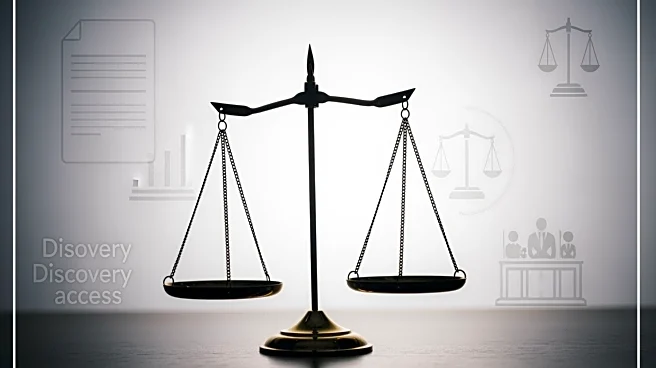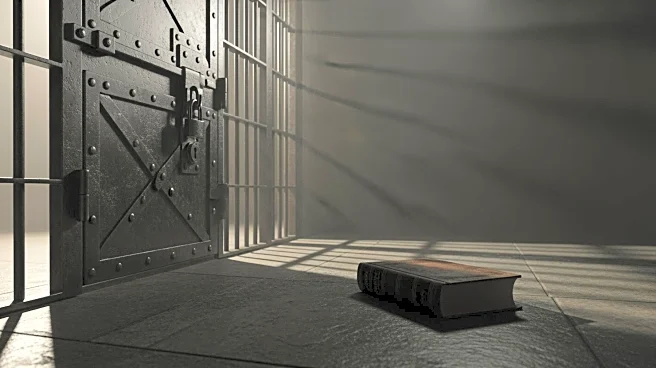What's Happening?
Former FBI Director James Comey has achieved a procedural victory in his criminal case before the U.S. District Court for the Eastern District of Virginia. Judge Michael S. Nachmanoff denied the Justice
Department's request to impose broad limits on how Comey's defense team can access and share discovery materials. The government had sought to classify nearly all evidence as 'Protective Material,' restricting Comey's attorneys from leaving any discovery materials in their client's possession. Comey's legal team opposed these restrictions, arguing they would impede his ability to assist in his own defense. The judge agreed, adopting Comey's narrower proposal that more closely defines what qualifies as protected information. This decision allows Comey and his legal team to review and share discovery materials with potential witnesses without the additional restrictions sought by prosecutors.
Why It's Important?
The ruling in United States v. Comey marks a significant moment in a case that extends beyond one defendant. By rejecting the Justice Department's bid to keep discovery under tight control, the court has raised questions about transparency, fairness, and prosecutorial authority in politically sensitive cases. This outcome could influence not only how Comey defends himself but also how federal prosecutors handle sensitive evidence and appointments across the government. The decision emphasizes the importance of appropriately tailored limits on discovery to ensure a fair trial, highlighting the balance between government confidentiality and a defendant's right to access evidence.
What's Next?
Comey's legal team plans to file a motion on October 20, 2025, challenging the legality of the U.S. Attorney's appointment in the Eastern District of Virginia. This move will prompt reassignment of the issue to an out-of-district judge under federal law. The judge will decide whether the prosecutor's appointment was constitutionally valid; if not, the indictment could be dismissed or reassigned. Meanwhile, discovery will continue under the court's newly adopted protective order, allowing Comey broader access to evidence while keeping certain sensitive materials confidential. No trial date has been set, and the outcome of the appointment challenge will likely determine how, or even whether, the case proceeds.








